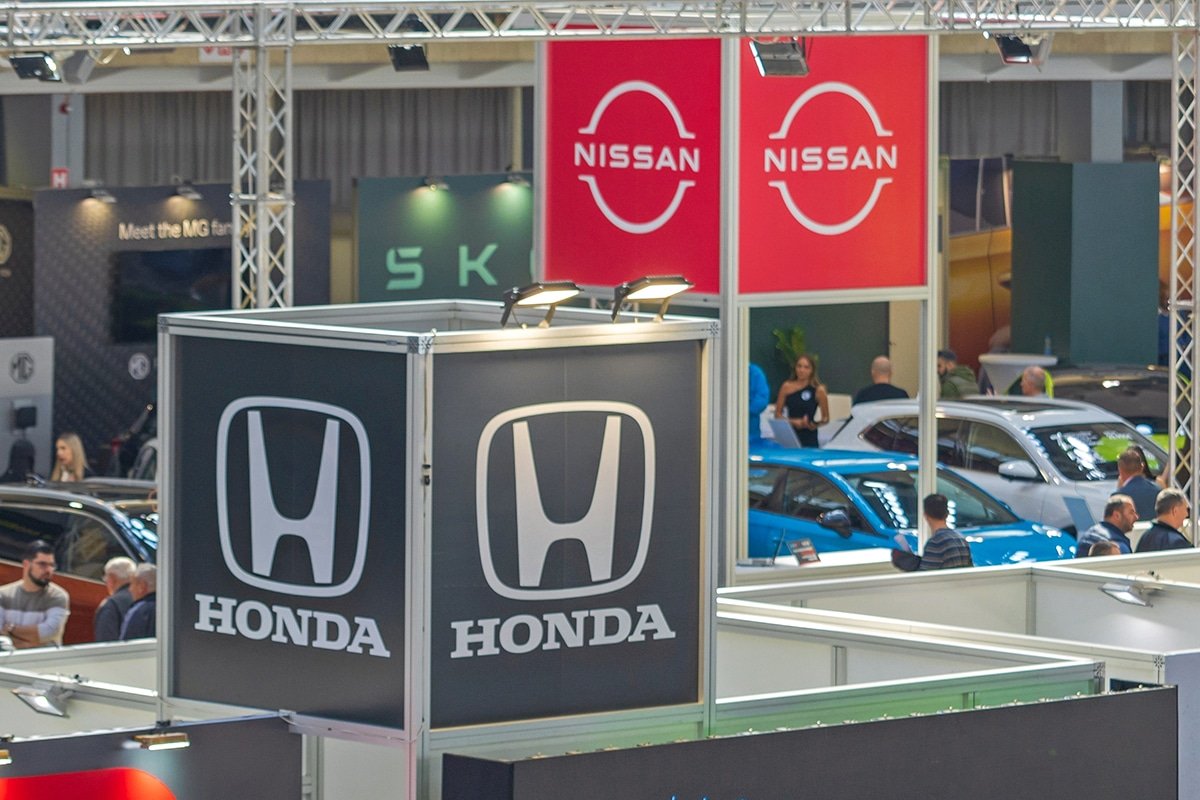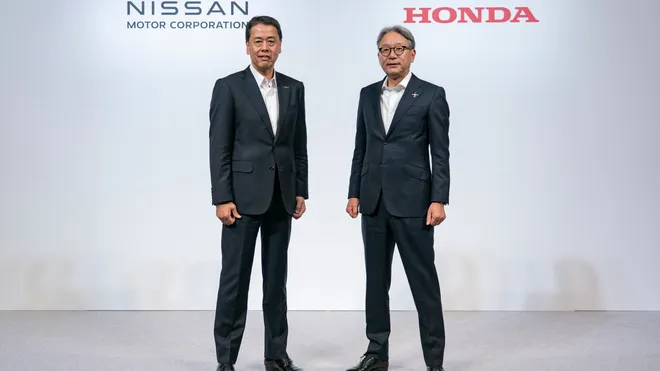Introduction: A Strategic Shift in the Automotive World
In a bold move that has captured the attention of the global automotive market, Nissan and Honda are reportedly considering a merger. Such a partnership could signal one of the most significant industry consolidations in recent history, potentially creating a powerhouse capable of rivaling the largest automakers in the world.
This article delves into the strategic reasons behind the potential merger, its implications for the industry, and the challenges both companies might face on the road to integration.
Why Are Nissan and Honda Considering a Merger?
The global automotive market has undergone dramatic changes in recent years. Factors such as the rapid adoption of electric vehicles (EVs), the increasing cost of innovation, and heightened competition in key markets are pushing automakers to rethink their strategies.
- The Shift Toward Electric Vehicles
Governments and environmental organizations worldwide are mandating a shift away from traditional gasoline-powered vehicles. Both Nissan and Honda have been investing heavily in electrification, and a merger would allow them to combine resources and expertise to accelerate EV development. - Economic Pressures
Developing new platforms, autonomous driving technologies, and advanced manufacturing processes requires significant capital. By pooling their financial and technological resources, Nissan and Honda can reduce costs and increase profitability. - Global Market Competition
Rivals such as Toyota, Volkswagen, and Stellantis dominate the global market. A merger would help Nissan and Honda secure a stronger position in regions like North America, Europe, and Asia.
What the Merger Could Mean for the Auto Industry
If the merger goes through, the combined entity could bring about transformative changes across the industry:
- Increased Market Presence
Together, Nissan and Honda could become one of the largest automakers in the world, producing millions of vehicles annually and commanding a significant share of the global market. - A Boost to EV Development
Honda’s bold commitments to electrification, coupled with Nissan’s established success with models like the Leaf, could position the merged entity as a leader in the EV segment. - Technological Advancements
A unified R&D team could lead to groundbreaking innovations in areas such as battery technology, autonomous vehicles, and sustainable manufacturing practices. - Cost Savings
Streamlining supply chains, manufacturing processes, and administrative functions could lead to substantial cost reductions, allowing the companies to offer more competitive pricing.
Challenges on the Road Ahead
While the potential benefits of the merger are immense, the path to integration is fraught with challenges:
- Cultural Integration
Nissan and Honda have distinct corporate cultures, values, and management styles. Aligning these differences will be crucial for the success of the merger. - Regulatory Scrutiny
Antitrust authorities in major markets may closely examine the merger to ensure it does not harm competition. Obtaining regulatory approvals could be a lengthy and complex process. - Existing Partnerships
Nissan’s ongoing alliance with Renault could complicate the merger. Resolving potential conflicts and restructuring existing agreements will require careful negotiation. - Market Risks
The automotive market is volatile, with fluctuating consumer demands and economic uncertainties. A merger of this scale must be resilient to market disruptions.
What Could Consumers Expect?
For consumers, a Nissan-Honda merger could lead to several benefits, including:
- Enhanced Vehicle Options
The combined expertise of the two automakers could result in a wider range of innovative and high-quality vehicles. - Affordable Pricing
Cost efficiencies achieved through the merger might translate into more competitive pricing for consumers. - Improved EV Accessibility
By leveraging their strengths in electrification, the companies could make EVs more affordable and accessible to a broader audience.
However, the merger also raises questions about potential job cuts, changes in dealership networks, and the impact on aftermarket services.
A Closer Look at Electrification and Sustainability
One of the key drivers of this potential merger is the push toward sustainability and electrification. Both Nissan and Honda have ambitious goals:
- Honda’s Vision
Honda aims to achieve carbon neutrality by 2050, with plans to phase out gasoline-powered vehicles entirely by 2040. - Nissan’s Achievements
Nissan was among the first automakers to launch a mass-market EV, the Nissan Leaf. The company continues to invest heavily in EV technology and charging infrastructure.
Together, the two companies could develop advanced EV platforms, invest in renewable energy initiatives, and lead the charge toward a greener automotive future.
Potential Industry-Wide Impacts
The Nissan-Honda merger could inspire similar collaborations across the automotive industry. Automakers are increasingly recognizing the need for partnerships to stay competitive in a rapidly changing market.
- Consolidation Trends
The merger may set a precedent for other companies to pursue strategic alliances, especially in the areas of electrification and autonomous driving. - Accelerated Innovation
By pooling resources, automakers can achieve faster and more cost-effective innovation, benefiting consumers and the industry as a whole. - Geopolitical Implications
A stronger Japanese automaker could challenge the dominance of European, American, and Chinese competitors, reshaping the balance of power in the global market.
Insights from Industry Experts
Industry analysts have mixed opinions on the potential merger:
- Optimistic Views
Many believe the merger could create a global leader capable of setting new standards in innovation, sustainability, and market performance. - Cautious Perspectives
Some experts warn of the risks associated with integrating two large organizations, particularly in a highly competitive and unpredictable industry.
Ultimately, the success of the merger will depend on careful planning, strong leadership, and the ability to adapt to evolving market conditions.
Conclusion: A Defining Moment for the Automotive Industry
The potential merger between Nissan and Honda represents a bold step toward addressing the challenges of the modern automotive landscape. If successful, this partnership could create a formidable player in the global market, capable of leading the industry in innovation, sustainability, and customer satisfaction.
However, the road ahead is complex, and both companies must navigate cultural, regulatory, and market challenges to realize the full potential of the merger. For now, the automotive world watches closely as Nissan and Honda explore this historic opportunity, with the promise of reshaping the future of mobility.





Leave a Comment